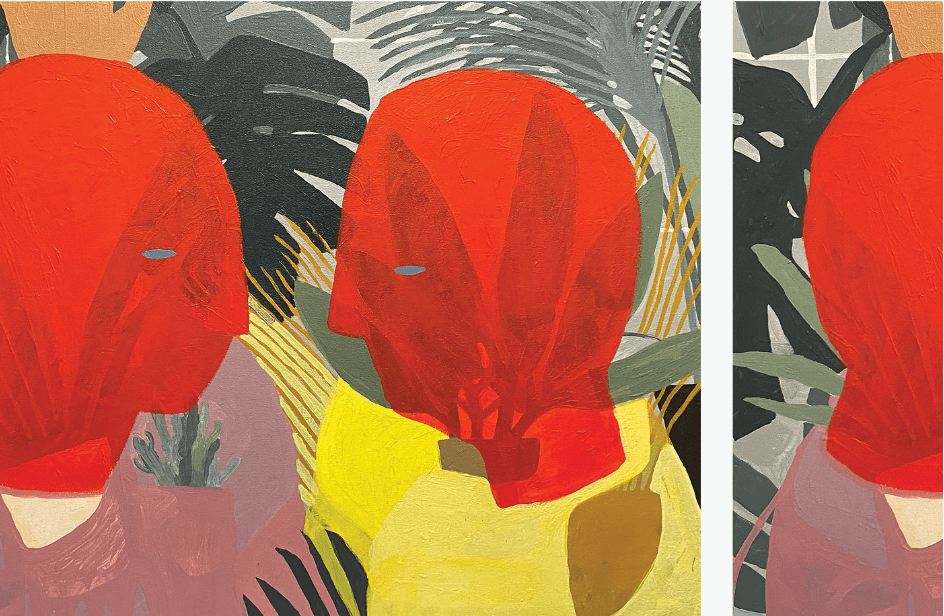THE EPSTEIN HOTEL was on Vermont Avenue in Washington, DC. It was built in the Second Empire style for some diplomat but later after passing hands through successive generations of elite bureaucrats had been repurposed as a hotel and hostel. By the time I arrived one night, with just one suitcase, fresh off an Amtrak train from Newport News, Virginia, all of the single rooms had been booked and I was given a bunk in one of the hostel’s eight-bed dormitories.
This turned out to be a lovely space on the top floor with its own kitchenette, a nice view of some green memorial park, and plenty of guests. All of the other seven beds in the room were taken, and one of my bunkmates happened to be Heath Harrigan, an old high school chum, now a karate teacher and lifestyle influencer who had strong opinions on vaccines, chem trails and the like, and had accrued a following of thousands. Joe Rogan had even interviewed him.
He looked great — the supplements he sold on his channel were working, his hair was still dark and wavy — and he invited me in to what soon became a rather wild bunkbed party, with plenty of pretty university students and Japanese tourists who were also domiciled at the Epstein Hotel. It was good to see Heath again, but I was tired, and I crawled up to my top bunk. It was impossible to sleep. They were all arguing about the measles mumps rubella vaccine.
“Shut up,” I heard Heath tell one of the Japanese. “You don’t know what you’re talking about.”
The plan was to go to Boston to meet up with Bergerac, a former university friend who had taken on a teaching position and had an office in Cambridge, Massachusetts, just over the Charles. In my mind, Boston didn’t seem so far away from Washington, it was just a quick jaunt, like going to the supermarket for some butter or bread. Just a quick journey to Boston and I would be back. Bergerac had become quite knowledgeable since graduation and knew the details on the makings of all albums by The Who. Bergerac was tall, bearded, French, Jewish. I liked him immensely. Just a train to Boston to visit Bergerac and all would be jake.
Besides, there was no sleep going on at the Epstein Hotel. My roommates were too loud with their arguments over vaccinations and pillow fights. In the middle of the night, I got up to get a bottle of water from a vending machine in the common area, and maybe some salted peanuts. I began to wander the halls of the hotel. Everything had been refurbished in that light, beige, putrid colonial tone that many hotels in Washington and Alexandria and other such places are painted in. The air smelled of aged carpet, but it wasn’t a musty smell, just a hotel smell. There in the back hall, I encountered the man himself, Lord Epstein. This was him in his element, the Epstein Hotel. He was seated in a corner with two young blonde women beside him. These were Estonian women, maybe 25 years old. He was talking. They were laughing at his jokes.
“Sorry to intrude,” I told Epstein. He nodded a bit with that big ominous head of his and pretended that he didn’t hear me. He just watched them, swigging from a bottle of Perrier.
Returning to my room was complicated. All of those beige carpeted hallways, turns, dead ends. When I got back, the police had arrived. They were marking off the crime scene and taking photos. The two same young Estonian women I had seen before were sprawled out on the floor. They were both very dead, but otherwise looked quite peaceful, as if they were sleeping. Heath came over to me. He was holding a half-empty bottle of champagne and his shirt was off. His eyes were all bloodshot. Heath Harrigan said to me, in a tired, subdued voice, “Epstein stopped by, man. But the party got out of hand. Things got way out of hand. You should leave now.” That I did. I was on the next train to Boston, to meet with Bergerac, to talk about Tommy.
“Tommy can you hear me? Can you feel me near you?”
I whistled as Washington dissolved into Maryland. Before I knew it, we were in Philadelphia. Home free.


